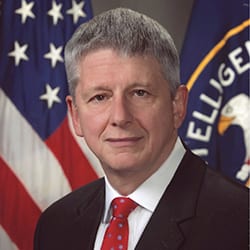PHOTO: ISTOCK.COM/MIKOLAJN
“‘History,'” as Mark Twain reminds us, ‘does not repeat itself but it does rhyme.’ At least part of the answer to the question of how the U.S. is to deal with today’s Russia lies in drawing from the past,” declares former senior CIA executive Mark Kelton in the article Another Russian Dossier, aka What Moscow Has Always Done published by The Cipher Brief, a digital, security-based conversation platform that delivers “relevant analysis of news and events that helps readers accurately anticipate and safely navigate the complex, unstable, global security environment.” Kelton, who currently serves on Daniel Morgan Graduate School of National Security’s Board of Advisors, draws attention to the “well-documented but under-reported” incident where Senator Edward M. Kennedy of Massachusetts dispatched Democratic Senator John Tunney of California to Moscow to extend an offer to work closely with high-level officials in Moscow to sabotage the U.S. opposition party’s presidential election campaign, and to orchestrate favorable American press coverage for the Senior Kremlin leadership.
Kelton writes:
I highlight these ties between a sitting U.S. senator and the Soviet leadership not to excuse any collusion that may be proven to have occurred during the 2016 Presidential election campaign, although that seems unlikely at this stage. Rather, I want to point out that were such collusion to be proven, it would not be unprecedented.
Indeed, there is almost no eventuality that might arise related to the current espionage imbroglio between Moscow and the U.S. that would be wholly without precedent within the context of the century-long intelligence struggle between the U.S. and whatever regime, be it Soviet or Russian, that has ruled in Moscow. And in a country with a marked affinity for authoritarian rule by strong men, the study of historical precedent is crucial to understanding how the man in charge in Moscow, himself a former intelligence officer, views the world and how to deal with him. In our spy wars with Russia, the past is truly prologue.
Another Russian Dossier, aka What Moscow Has Always Done lends insight into how to predict Putin’s future actions based upon Russia’s past. In Kelton’s view, Putin is motivated by regime stability and fears the spreading of democratic ideals as occurred through President Reagan’s work to support those resisting Moscow’s rule and foster democratic ideals inside the Evil Empire itself through overt and covert means during the Cold War.
Author

Mark Kelton served as a senior Central Intelligence Agency executive with 34 years of experience in intelligence operations. His career culminated as Deputy Director of the National Clandestine Service for Counterintelligence (DDNCS/CI), one of the most senior ranking positions in the Clandestine Service and, as such, directed CIA’s counterintelligence and counterespionage programs and protected the nation’s closely guarded secrets. He collaborated closely with the FBI and other US agencies and directed the CIA insider threat programs.
Kelton has more than fifteen years of overseas service including four Chief of Station assignments. He also served as the Associate Deputy Director of the Clandestine Service for Technology, where he was responsible for the selection, testing, and deployment of all technology used by the Clandestine Service in pursuit of its clandestine mission; the Deputy Chief of East Asia Division, Directorate of Operations, where he assisted in the direction of all CIA intelligence operations, activities, and programs in East Asia including engagement with foreign partners; the Chief of Operations, Central Eurasia Division, Directorate of Operations, where he assisted in the direction of all CIA operations, activities, and programs in Eastern Europe and Eurasia; and as the Executive Assistant to the Deputy Director for Operations.
He is the recipient of numerous awards and commendations, including the CIA Distinguished Intelligence Medal, the Director of National Intelligence Distinguished Service Medal, the CIA Director’s Award, the CIA Intelligence Medal of Merit, the William J. Donovan Award (twice), the CIA Exceptional Human Intelligence Collector Award, and the Intelligence Community Seal Medallion.
Kelton earned a bachelor’s degree in Political Science from the University of New Hampshire, a master’s degree in International Security Studies from Fletcher School of Law and Diplomacy, and a master’s degree with highest honors in National Security Affairs from the US Naval War College, College of Naval Warfare.

